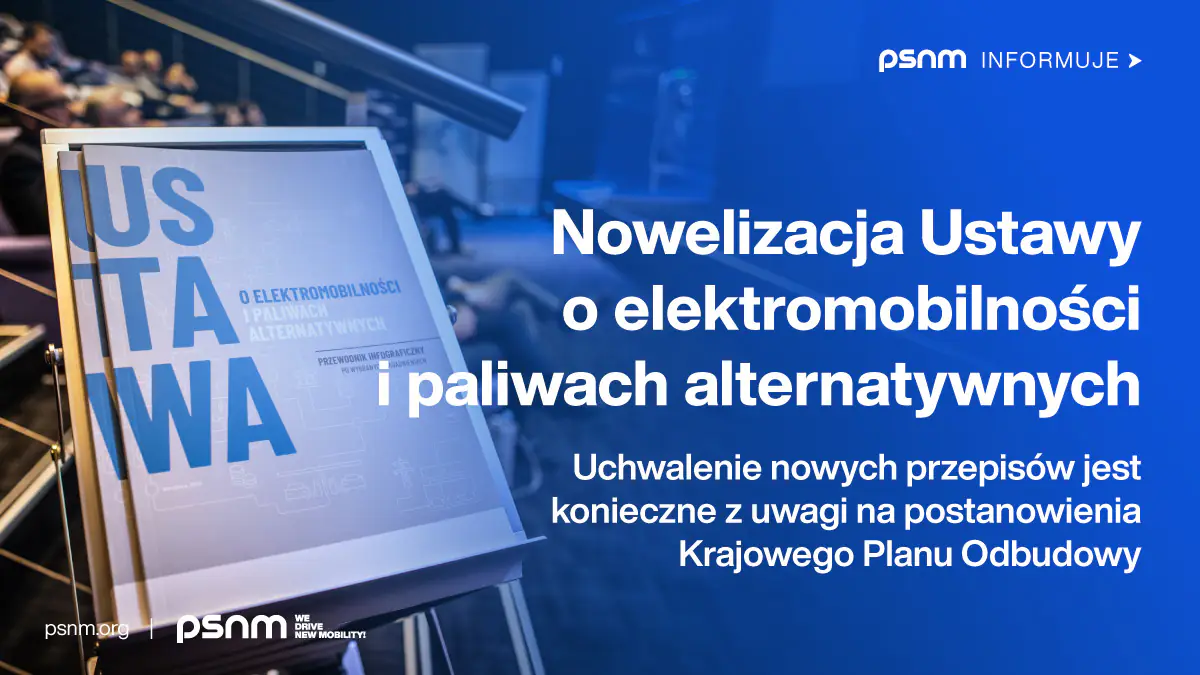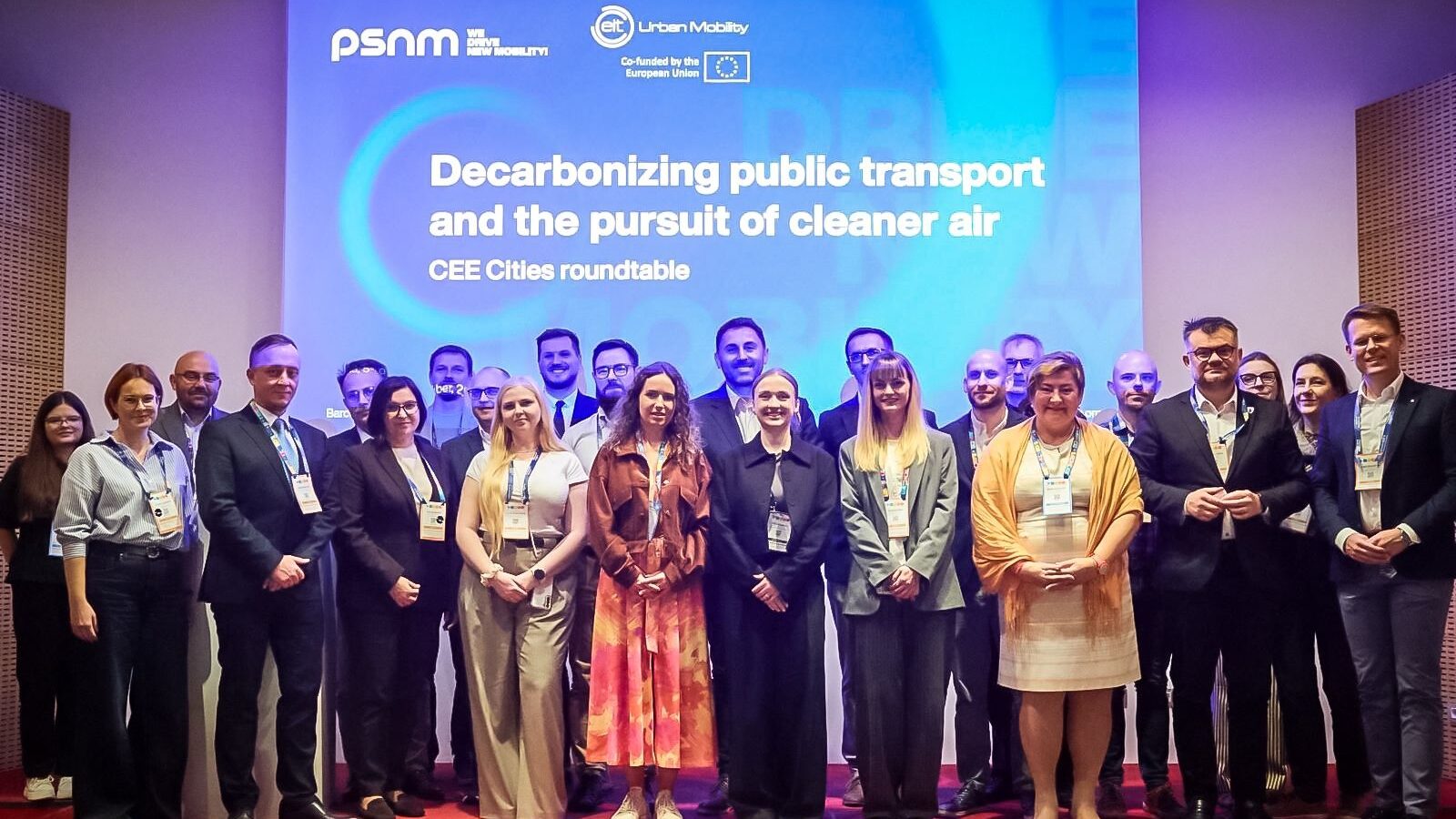-
The government has today approved a draft amendment to the Act on Electromobility and Alternative Fuels.
The proposed new regulations include, among others, the obligation to establish clean transport zones in cities with over 100,000 inhabitants where nitrogen oxide limits have been exceeded, and the requirement for the largest municipalities to purchase only zero-emission buses from January 1, 2026. -
The implementation of obligations related to the electrification of bus fleets may help support Polish manufacturers of e-buses, batteries, other components, and charging stations. However, municipalities must be guaranteed adequate funding, PSNM notes.
-
The adoption of the new regulations is necessary due to the provisions of the National Recovery Plan adopted in 2021.
On October 22, 2024, the Council of Ministers adopted a draft amendment to the Act on Electromobility and Alternative Fuels and certain other acts (UD 52). In the justification for the draft, the Ministry of Climate and Environment emphasizes that the regulations being implemented will contribute, in particular, to the reduction of harmful emissions such as nitrogen oxides and particulate matter, as well as to limiting noise pollution, which is particularly severe in large Polish cities.
The new regulations stipulate that if an assessment of air pollutant levels shows that the annual average limit for nitrogen dioxide has been exceeded in a city with over 100,000 residents, then from January 1 of the year following the year in which the city’s mayor receives the assessment results, the municipal council must establish a clean transport zone. The General Inspector for Environmental Protection (GIOŚ) must immediately inform the municipality upon detecting such exceedances. However, the proposed changes have a significant limitation. Many Polish cities lack traffic-oriented measurement stations, meaning there will effectively be no basis to determine whether the clean transport zone implementation process should begin. Consequently, the obligation will, for now, apply not so much to cities where nitrogen oxide limits were exceeded, but to those where measuring stations reported exceedances.
– This is, in a way, a return to proposals that were supposed to be adopted several years ago but ultimately did not come into effect. At the same time, the enactment of the new regulations results from reforms under the National Recovery Plan (KPO) adopted by the Council of Ministers in April 2021. According to GIOŚ data, this concerns Warsaw, Wrocław, Kraków, and Katowice. Regarding clean transport zones (CTZ), Poland remains a blank spot on the European map. There is currently only one CTZ in Poland, whereas, for example, Spain has nearly 50 – says Agata Wiśniewska-Mazur, Deputy Director of Organization Development and Coordinator of the PSNM Municipal Committee.
The government draft also introduces the obligation to purchase only zero-emission buses for passenger transport in municipal public transport in municipalities with more than 100,000 residents. The proposal in this area is also a result of KPO provisions. The government further argues that the proposed regulations will strengthen Polish companies in the electromobility sector.
– The domestic market for zero-emission public transport in Poland is a key sales channel for a range of companies supplying electric and hydrogen buses, their components (especially traction batteries), and charging stations. Stimulating demand for e-buses among municipalities strengthens the potential of domestic companies to export their products abroad. Considering the forecasted rapid growth of this sector in the coming years, the new regulations will have a positive impact on the entire Polish economy. This is particularly important now, in the context of a temporary decline in bus registrations in Europe and growing competition from Chinese manufacturers. At the same time, municipalities should be guaranteed adequately high funding to purchase zero-emission vehicles, with subsidies coming, among others, from the KPO – says Aleksander Rajch, Member of the PSNM Board.
The proposed amendment to the Act on Electromobility also introduces other changes, including partial relief from existing obligations for municipalities regarding fleet electrification. The government has proposed, among others, repealing Articles 35(2), (3), and (4) and certain episodic provisions in Article 68(2), which currently require municipalities with more than 50,000 residents to perform or commission public tasks ensuring an appropriate share of electric or natural-gas-powered vehicles. The Ministry of Climate and Environment argues that data show only a small minority of obligated municipalities have so far fulfilled these requirements, making the statutory targets very difficult to achieve within the set deadlines.
– Implementing the proposed changes would represent inconsistency on the part of the legislator, particularly regarding entities that have fully or partially met the goals set out in the regulations, which have been in force for over six years. Instead of completely removing the obligation to perform, commission, or delegate public tasks with an appropriate share of electric vehicles, it would be more appropriate to consult on which areas can already be successfully decarbonized and under what conditions. Subsequently, supporting the updated obligations through appropriate support programs is advisable. With technological advancements and an increasingly rich market offering, in 2024 many services can already be performed by electric vehicles, with municipal services being a prime example. Easing obligations is particularly incomprehensible in the context of planned subsidies for zero-emission heavy-duty vehicles (categories N2 and N3). The funding program for eHDVs is likely to be launched between 2024 and 2025, which will significantly facilitate the electrification of fleets belonging also to companies performing public tasks – says Maciej Mazur, Managing Director of PSNM.
The government draft amendment to the Act on Electromobility and Alternative Fuels, along with certain other laws, will next be considered by Parliament.
–
Recommended


